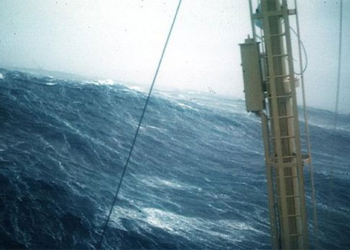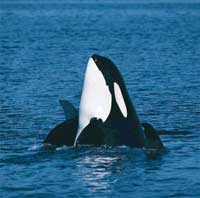Humpback whales protect seals, moonfish, and many other species from the “ocean’s predators” and their relatives: orcas.
In May 2012, researchers observed a pod of orcas attacking a gray whale and her calf in Monterey Bay, California, USA. After a struggle, the calf did not survive. However, what happened next surprised them greatly.
Two humpback whales were present at the “scene” when the orcas attacked the gray whale and her calf. But after the calf was harmed, about 14 other humpback whales appeared – seemingly to “assist” and prevent the “ocean predators” from consuming the young whale.
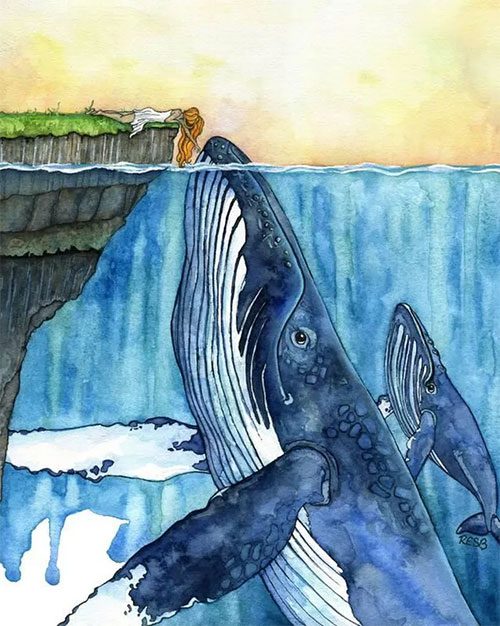
Humpback whale – “guardian angel” of the ocean.
Alisa Schulman-Janiger, a whale researcher at the California Killer Whale Project, described the situation: “One humpback whale maintained its position next to the body of the dead calf, facing it, standing just a whale’s length away, vocalizing loudly and slapping its tail whenever an orca approached to feed.”
For six and a half hours, the humpback whales persistently “guarded” and drove away the orcas with their pectoral fins and tails. Even when dense schools of krill appeared nearby – a favorite food of humpback whales – they did not abandon their efforts or lower their guard.
Scientists cannot understand why humpback whales would face danger and expend so much energy to protect an entirely different species. However, they know that this is not an isolated case. From 1954 to 2016, there were 115 recorded encounters between humpback whales and their relatives, the orcas, according to a study published in Marine Mammal Science.
According to Schulman-Janiger, this protective behavior has been observed in various regions around the world, but the confrontation in 2012 was perhaps the most intense ever recorded.
“Guardians” of the Ocean
The most reasonable biological explanation for the behavior of protecting other species from the sharp teeth of orcas is that humpback whales gain some benefit. Scientists know that although they are closely related, orcas prefer to hunt humpback whales.
However, the chances for the “ocean predators” only exist when the massive creatures are still young. Once fully grown, humpback whales can overpower an entire pod of orcas with their size and strength.
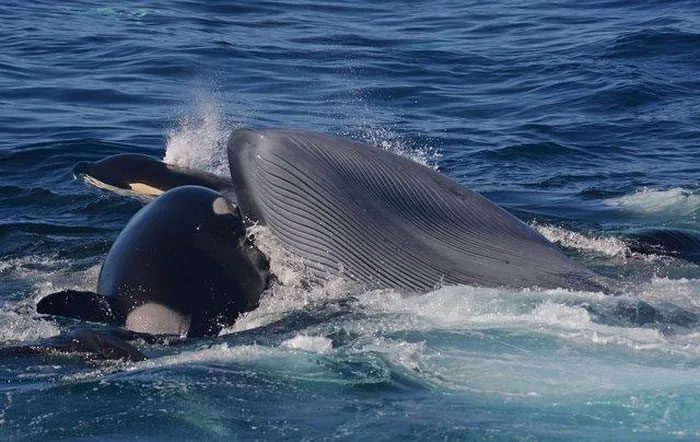
Humpback whales and orcas have long been known as ‘fierce rivals.’
Thus, their protective actions may stem from an instinct to help the young survive through their most vulnerable stages. Sometimes, humpback whales will protect calves of their own species because they tend to stay close to relatives – young whales often remain near their mother’s habitat.
The problem is that among the encounters with orcas over the past five decades, only 11% were to protect young humpback whales. In 89% of the other instances, humpback whales acted as “guardians” protecting seals, sea lions, pilot whales, and many other marine animals.
There have even been cases where humpback whales attempted to save a pair of moonfish from becoming “appetizers” for a pod of orcas.
However, Schulman-Janiger pointed out a very interesting sign. Not all humpback whales intervene in the hunting activities of orcas, but those that do often bear scars from their youth – when they had to fend off orcas to survive. Is there a psychological factor at play here that makes them “dislike” the bloodthirsty predators and choose to side with the weak?
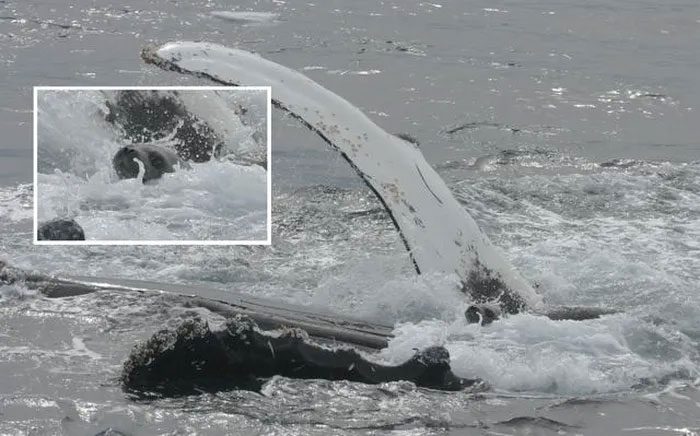
A seal being protected by the “guardian angel of the ocean” from an orca attack.
The study also indicated that these humpback whales react to the calls of orca pods and rush to intervene; often, they do not even know what species the victim is after expending so much energy swimming to the rescue. It seems that humpback whales believe “better to rescue the wrong one than to miss the right one”; if the victim saved is their own calf, that’s even better, but if not, that’s okay too.
A Pure Heart?
However, some whale experts believe that their motives are more complex and involve altruism.
Lori Marino, a specialist in whale intelligence, stated: “While this behavior is fascinating, I don’t think it’s surprising that a member of the whale family would help another species.”
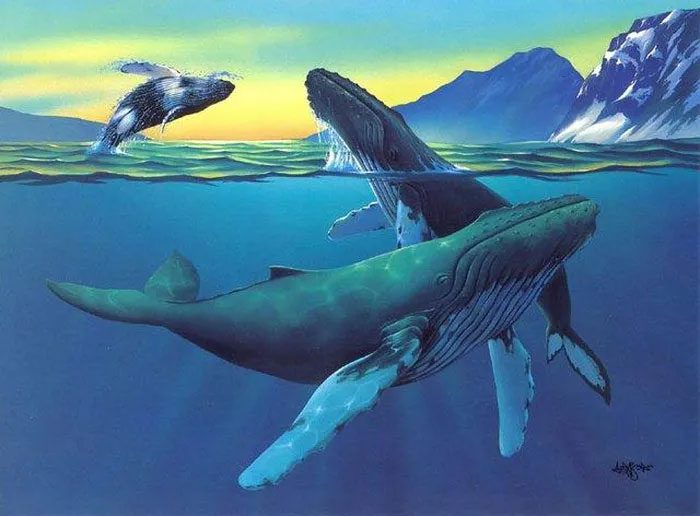
Humpback whales are incredibly intelligent, capable of complex thinking.
She also noted that humpback whales are highly intelligent, capable of complex thought, decision-making, problem-solving, and communication. Thus, she argues that such intelligence is sufficient to elicit compassionate responses toward other species.
This is reinforced by the fact that humpback whales are not the only intelligent animals acting as “guardians” for other species. Dolphins have also been reported multiple times to assist dogs, whales, and even humans from danger.
Whether humpback whales become “guardians” simply for biological benefits or due to their intelligence and pure hearts, one important thing remains: we still need to learn and study much more about these marvelous creatures of the ocean.








































